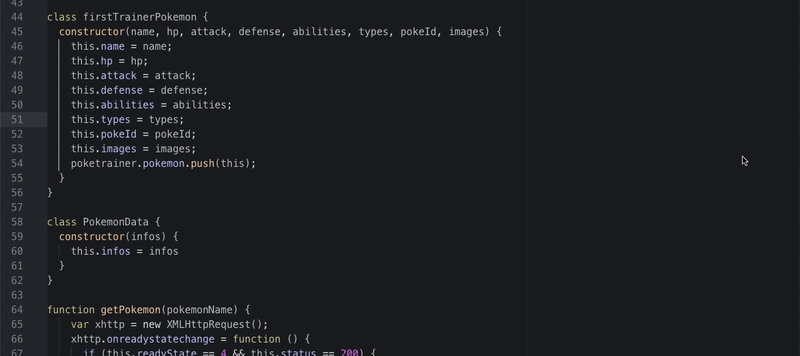The thought of programming an app might sound intimidating to anyone who hasn’t tried it before. Never fear! Your brain is up for the challenge.

“It must take years to learn!”
“You need to be REALLY good at math.”
“It’s too late to start coding… the good programmers started when they were kids!”
But what if these were just common misconceptions? What if you could make measurable progress in a short period of time? What if you could go from 0 to completed app in just a few weeks?
The answer lies in the concept of neuroplasticity, which is the brain’s remarkable ability to “restructure” and to form new neural pathways at any point in life. At one point, it was widely accepted that our brains developed in early childhood, and that learning new skills in adulthood would be a difficult feat.
Researchers across a wide spectrum of academic disciplines came up with theories that seemed to support these notions. The critical period hypothesis, for example, is one of the biggest debates in the field of second language acquisition.
Many people believe that it is only possible to achieve native-like proficiency in a second language if you begin learning the second language in early childhood. And yet, teenagers and adults become fluent in new languages all the time.
While neuroplasticity might occur more often during early childhood, our brains are constantly rewiring themselves, discarding unused information and creating new neural connections to help us respond to new challenges.
In other words, like a muscle, our brains can grow stronger at any age. The more we exercise our brains, the more our brains rewire themselves to accommodate our newfound skills -- regardless of age. And according to study after study, exercising our brains is one of the best ways to prevent Alzheimer’s disease, dementia, and cognitive deterioration.
How does coding exercise our brains?

It’s no secret that there is a significant learning curve when learning a new programming language -- or when learning anything for the first time.
The first time you look at a screen full of color-coded shorthand, brackets, and semicolons, you might feel as if you’re looking at a foreign language. In a way, you are!
But as you begin to learn the fundamentals of coding, those strange symbols become recognizable, and you develop proficiency just as if you were learning a foreign language.
Behind the scenes, your brain is restructuring its neural pathways to accommodate for this rapid cognitive growth.
Learn to code! Your brain will thank you.
When you devote a lot of time to a thought-intensive task like learning to code, your brain quickly rises to the challenge.
- You’ll see a measurable difference in your skill set each day.
- You’ll collaborate with others in a way that is conducive to learning from each other.
- You’ll walk away with more than just the foundations; you’ll be able to code an app from start to finish.
Our summer programs for high school and gap year students are offered in a variety of disciplines, from software engineering to full-stack web development and everything in between. Regardless of the program you choose, you’ll spend your summer learning real-world technical skills that will exercise your brain and improve your computational thinking skills -- while having fun, of course. (Not a high school student? We have coding classes for adults, including our Python Bootcamp, Full-Stack Web Development Certificate, and a full suite of web development courses in NYC.)
The skills you’ll learn in an intensive programming course will help you do more than just create a website or an app.
You’ll develop critical thinking skills, you’ll become an expert collaborator, and you’ll be exposed to countless specialties within the realm of technology. You’ll meet talented people from all walks of life. Whether you want to become a software engineer, a designer, or the CEO of a startup, your dreams will be within reach.
Learn more in these courses
-
![]()
Full-Stack Web Development Certificate
- Weekdays only
- 420 hours
- Open to beginners
- Financing available
- 1:1 Mentoring
Gain the skills and knowledge to become a Full Stack Developer and meet the growing demand for professionals who can develop and maintain web applications. This project-oriented course teaches you how to code websites from scratch, and you'll build a portfolio of working web applications to showcase to potential employers.
-
![]()
Data Science Certificate
- Weekdays, evenings, or saturdays
- 114 hours
- Open to beginners
- Financing available
- 1:1 Mentoring
Learn Python, SQL, automation, and machine learning to become a Data Scientist. Gain Python programming, data analysis, SQL querying, and predictive modeling skills. Perfect for beginners, this program prepares you for entry-level data science and Python engineering roles. Unlock high-paying job opportunities in the field of data science.
-
![]()
Front-End Web Development Certificate
- Weekdays only
- 108 hours
- Open to beginners
- Financing available
- 1:1 Mentoring
Learn front-end web development with HTML & CSS, and JavaScript, and gain skills in building responsive websites for any screen size. Additionally, learn how to use WordPress, the world's leading content management system, to create customizable websites and edit content without coding experience.


